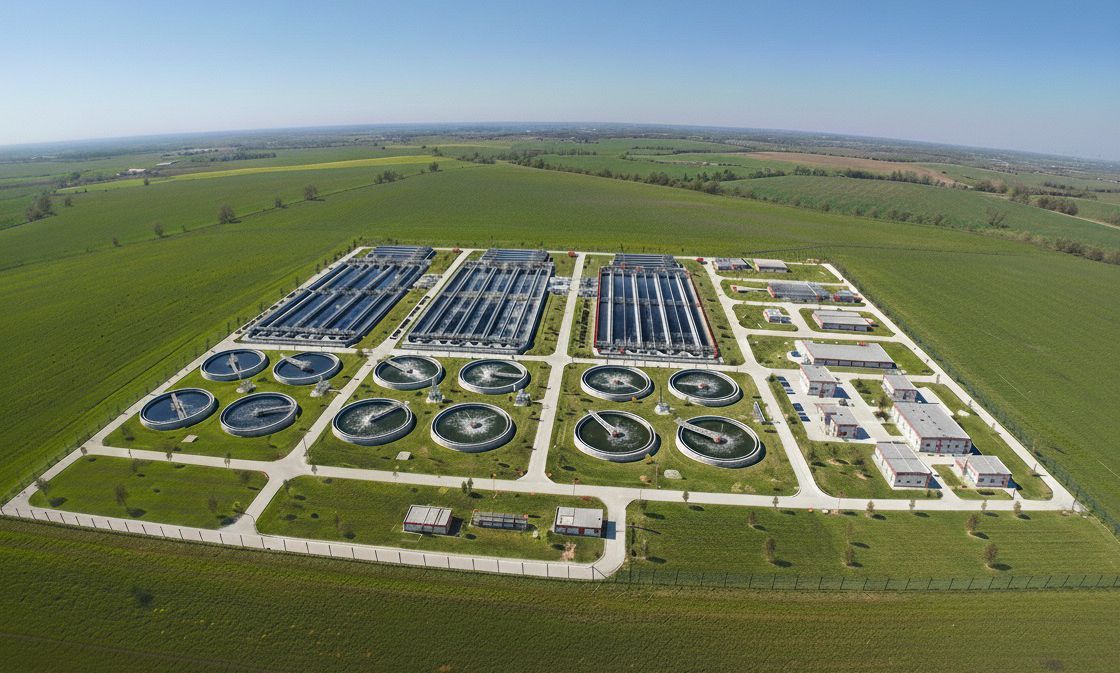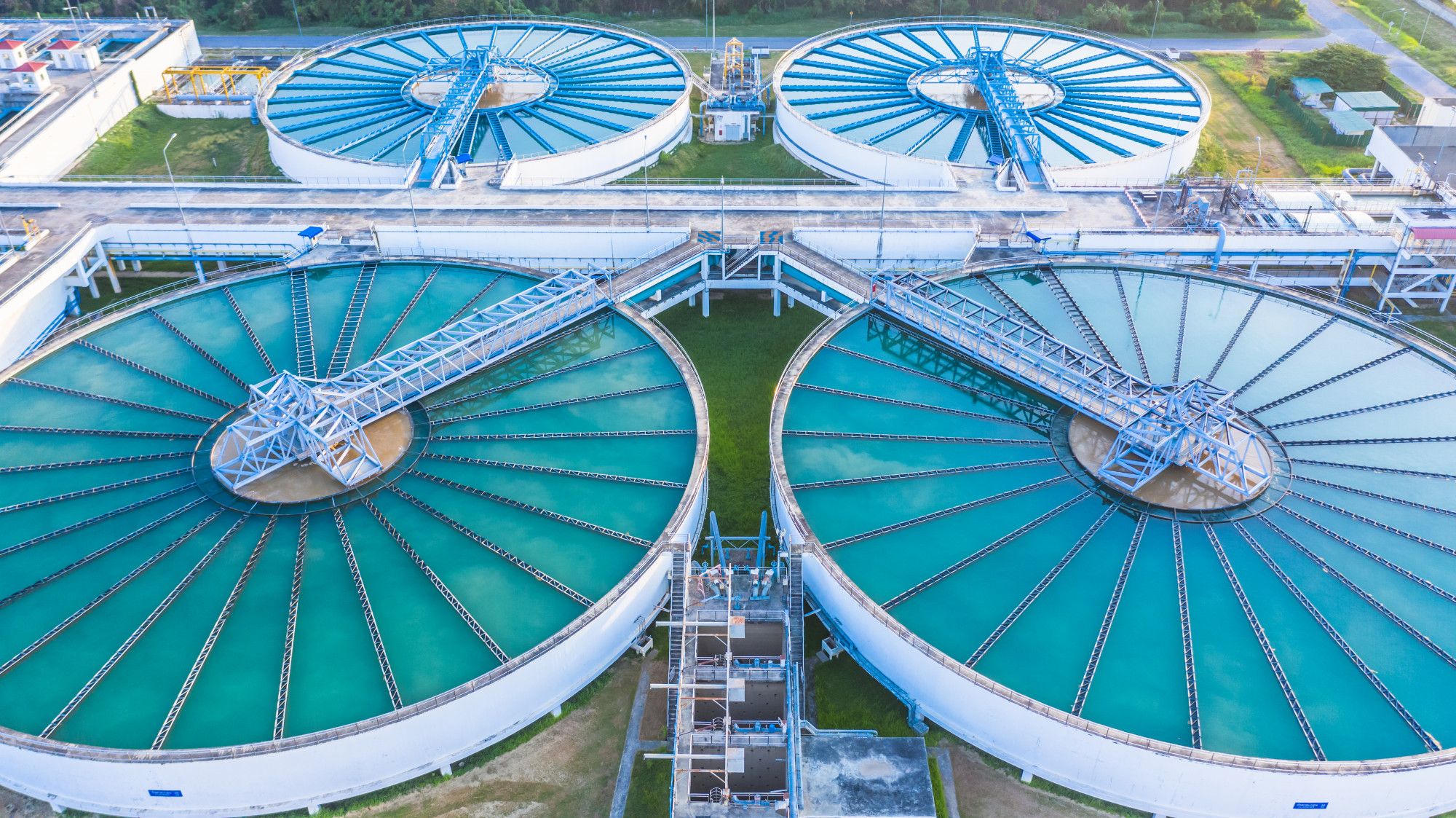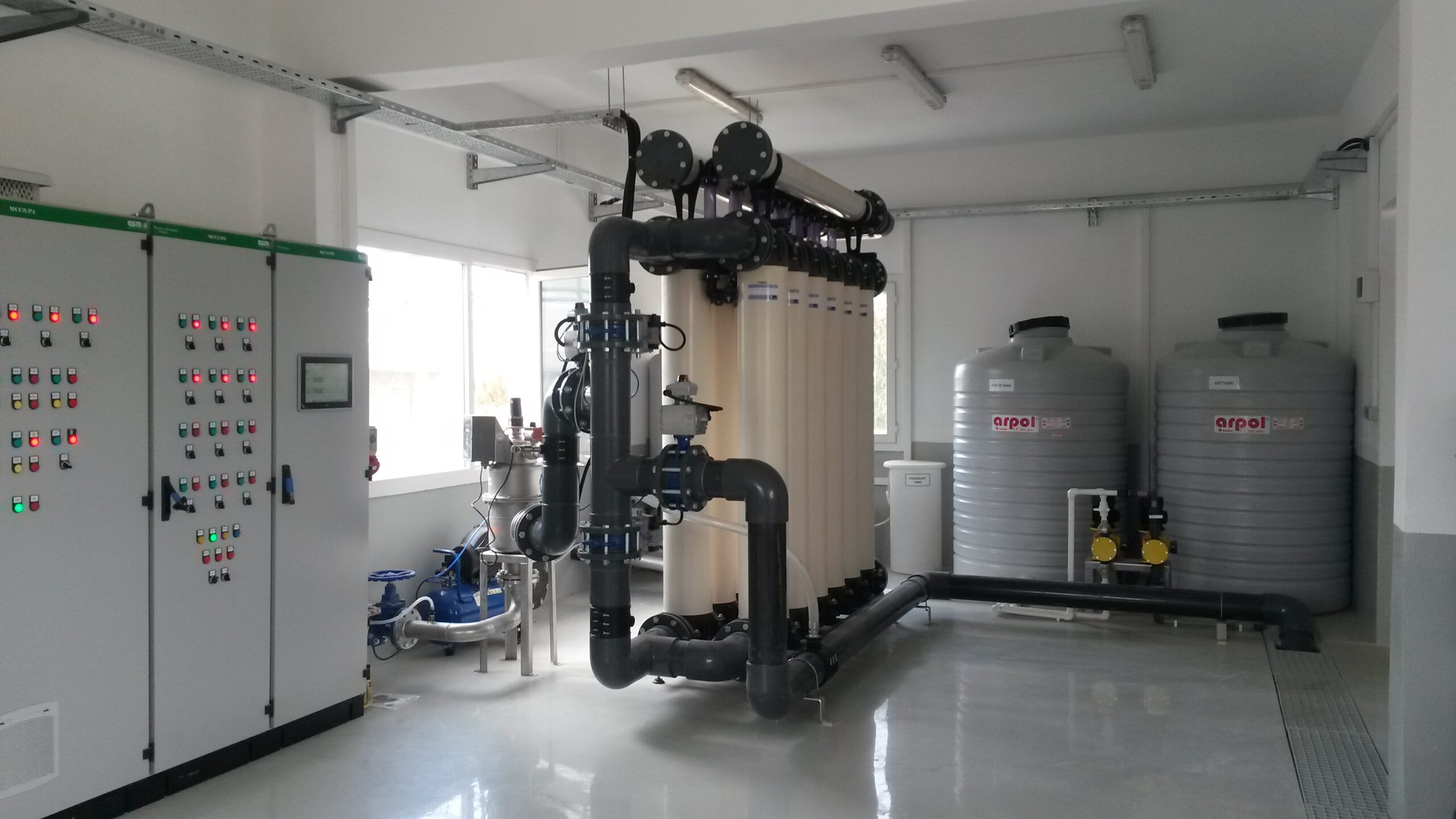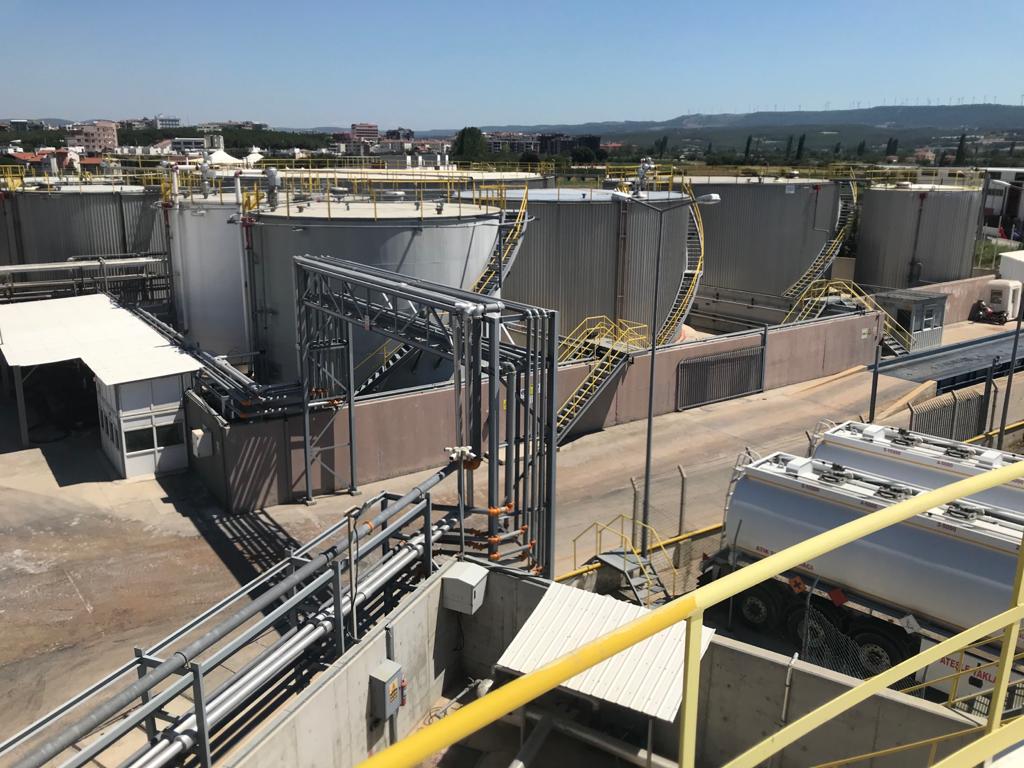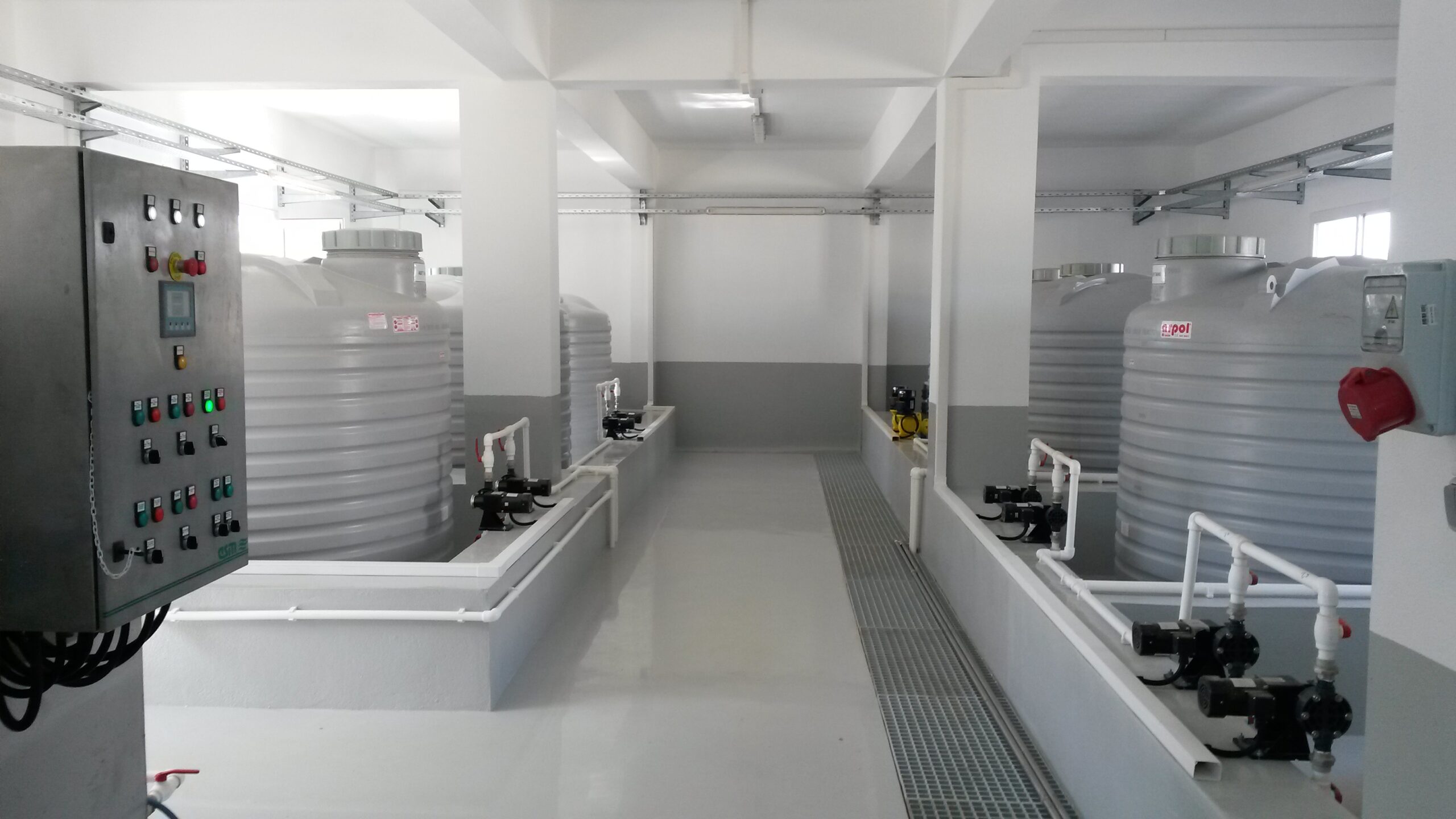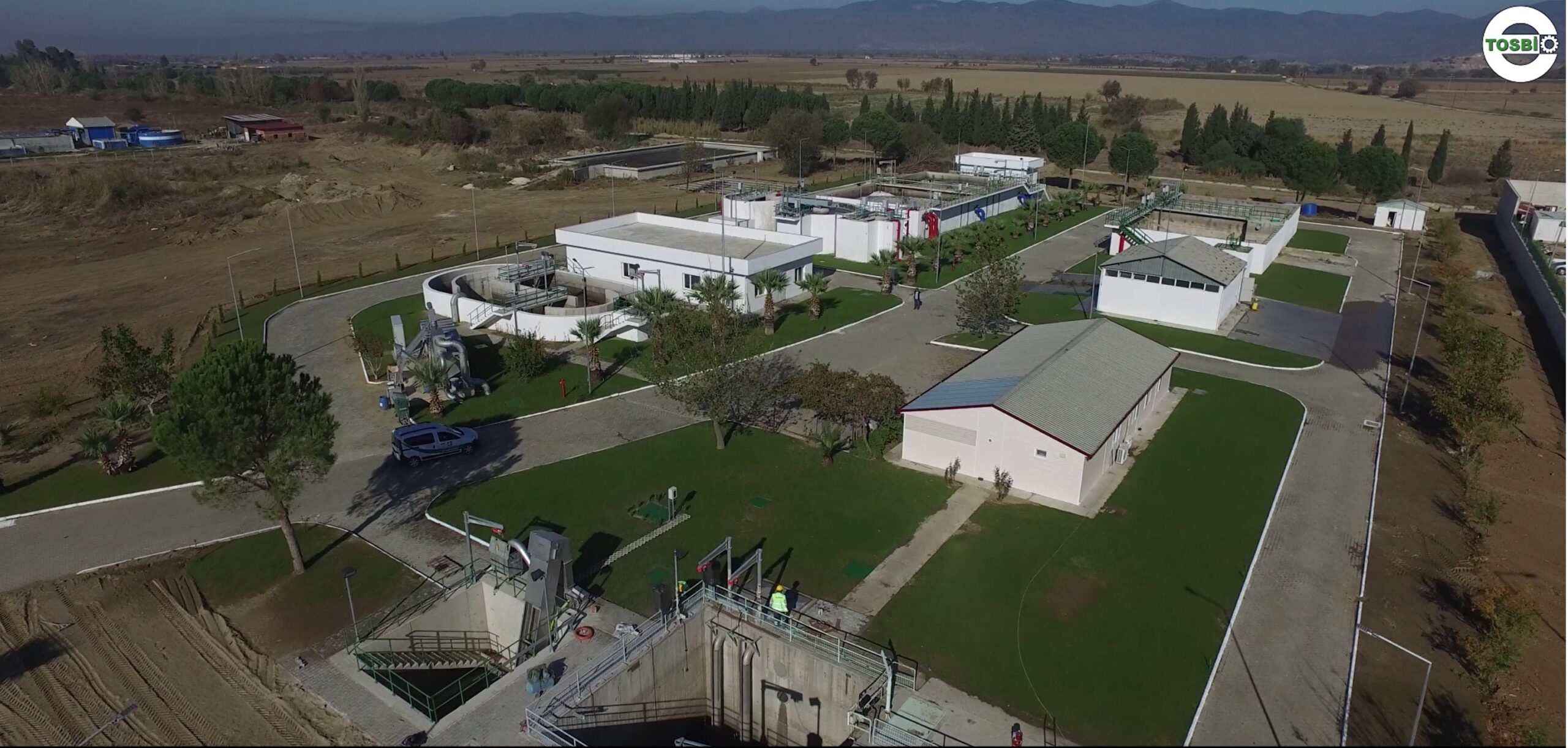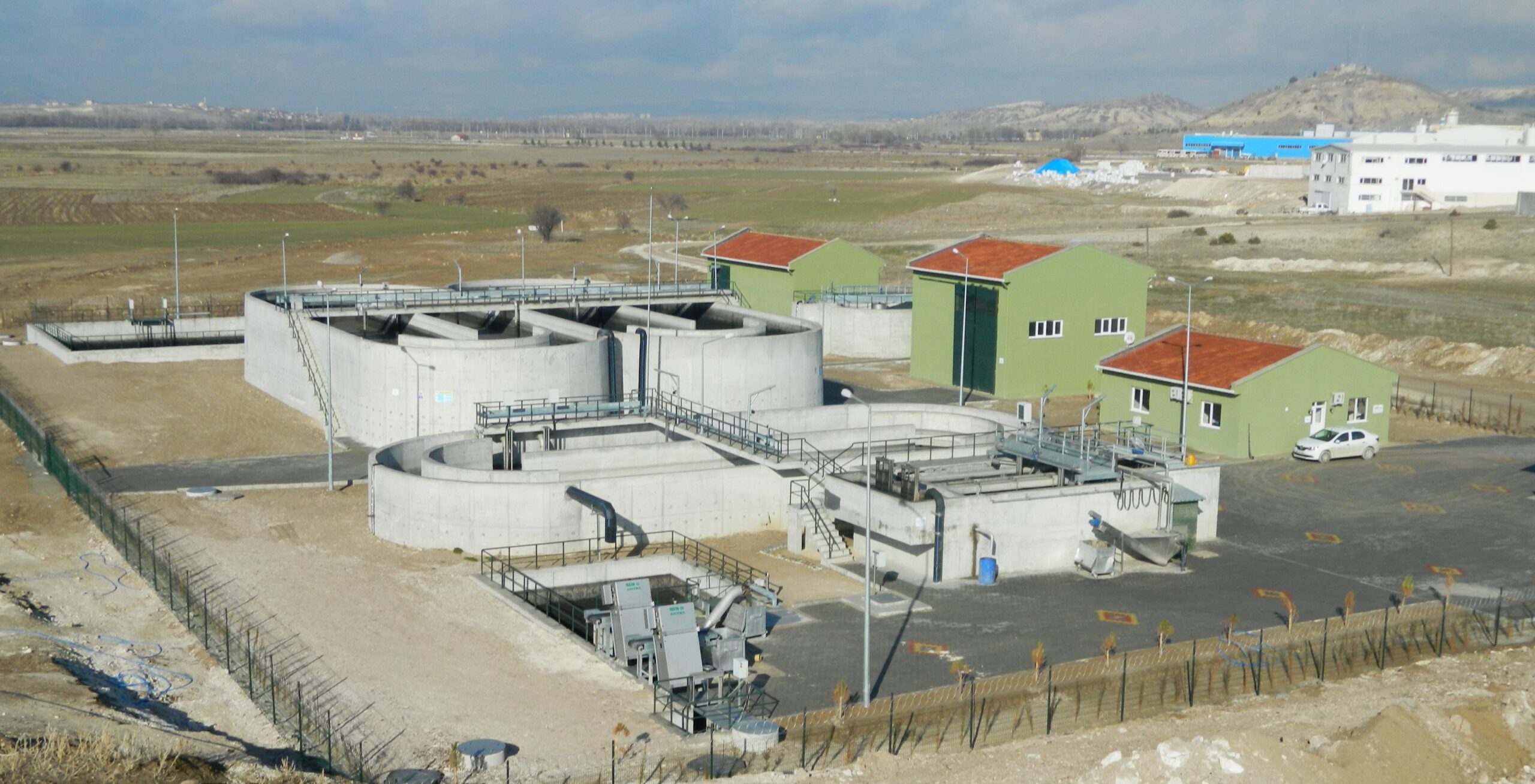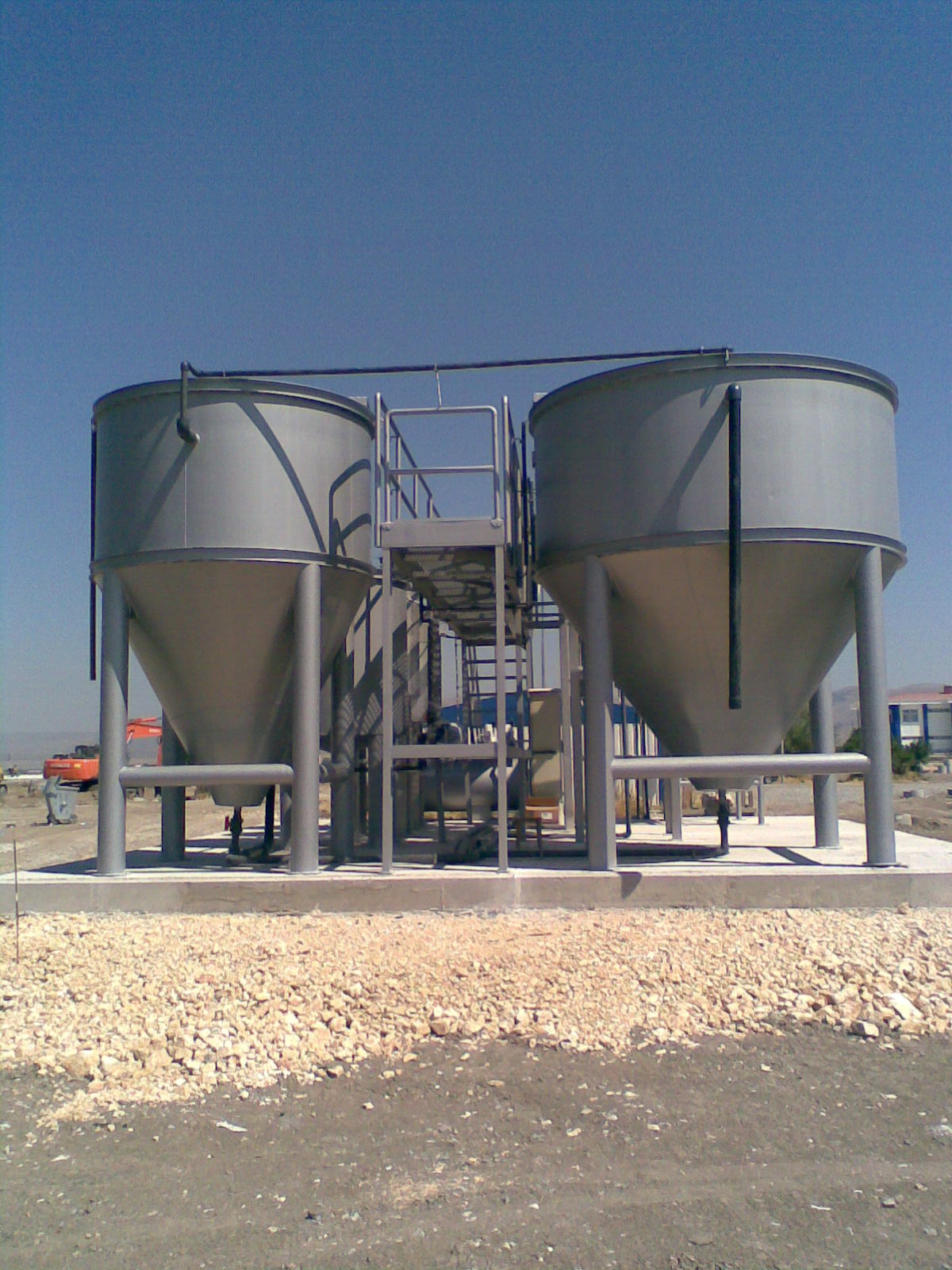Industrial Treatment Plants are chemical and biological treatment facilities that treat wastewater generated by businesses operating in organized industrial zones, primarily within industrial zones, to levels that comply with discharge limits or are suitable for use as potable water.
The main units found in these facilities include:
Pumping stations, physical treatment units, balancing tanks, chemical fast and slow mixers, chemical sedimentation tanks, biological aeration tanks, biological final sedimentation tanks, chemical and biological sludge dewatering units, and disinfection units.
Industrial Treatment Plants are the process of adjusting water to the desired chemical standards using chemical elements determined by scientific research and experienced methods. This process is often used to meet the needs of industrial users. While divided into different segments, the treatment methods generally share similarities. Balancing, mixing, sedimentation, and aeration processes are used both to ensure water meets chemical standards at the supply end and to ensure wastewater is discharged with chemical standards after use.
The Importance of Industrial Treatment
Industrial treatment carries both risks and importance because it directly involves chemical factors. Water that cannot be brought to the desired chemical standards in line with industrial needs can directly affect human health, while water that must be discharged after use, if not brought to the required chemical standards, can directly impact nature, natural species, and ultimately, human health.
Both industrial facilities and their application processes require critical projects that operate on delicate balances and are operated without compromising scientific data. From this perspective, it is a treatment process that requires careful consideration, both in terms of its importance and its risks.
The Role of Industrial Treatment in the Treatment Process
Industrial treatment occupies a critical position within treatment processes. Even if it is not directly connected to drinking water systems, it can indirectly impact consumer water. In this context, its place within water treatment processes, as it is commonly known, can be considered an intermediate form. Apart from drinking water and sewage systems, where water consumption is high, processes that are used relatively less frequently but carry risks are just as important as other processes.
While the techniques and methods applied in chemical treatment processes are partially similar to other treatment processes, the scientific data and application stages used should be evaluated under a completely separate heading.
Asm Aritma Sistemleri Industrial Treatment Solutions
Asm Aritma Sistemleri offers turnkey projects in the field of industrial treatment, as well as after-sales service and facility-specific needs that may arise during the maintenance and management phases of facilities. With its experience and numerous industrial treatment projects, Asm Aritma Sistemleri provides complete and comprehensive service and projects tailored to your needs.
You can review our references for examples of industrial treatment projects or contact us for detailed information.
